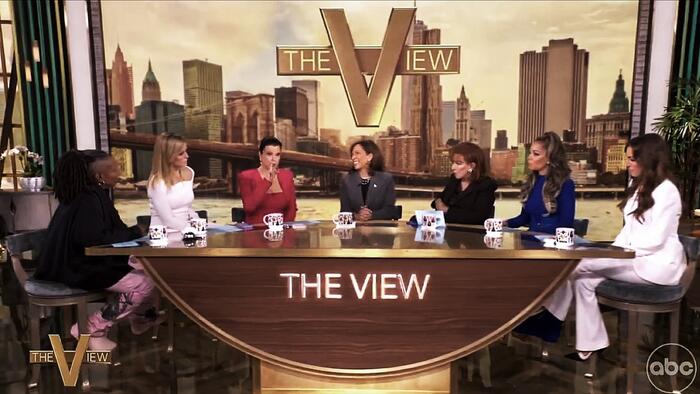In an analysis of Kamala Harris’s unsuccessful bid for the presidency, veteran political strategist James Carville identifies a pivotal moment that underscored the candidate’s struggles. Carville highlights an appearance by Harris on the show The View, where she was unable to articulate a single policy distinction between her presidency and that of incumbent President Joe Biden. This moment, according to Carville, was shocking and signified a broader failure in her campaign strategy. Harris’s pronounced lack of preparedness for what should have been a straightforward question raised eyebrows, suggesting she lacked the necessary cognitive readiness to tackle basic political discourse.
During her appearance, when prompted by host Sunny Hostin to specify any differences in approach or policy from Biden’s presidency, Harris’s response was bewildering; she stated, "There is not a thing that comes to mind." This inability to respond was particularly damning given her prominent role in the administration’s decisions. Carville believes that this moment will be remembered as a turning point for her campaign, crystallizing a narrative of inadequacy in leadership. He further posits that the specific phrasing of the inquiry aimed at Harris highlights a misguided attempt at a softball question that ultimately derailed her public image.
Despite the opportunity to clarify her positions in subsequent interviews, Harris’s continued failure to provide distinct points of differentiation only compounded the issue. This failure was noted in several follow-up appearances where reporters pushed for specifics on her policy stances. Her responses continually leaned towards boilerplate statements about vice presidents not criticizing their presidents, reflecting a lack of individuality and vision. Such responses not only alienated potential voters but presented her as a passive participant rather than an assertive leader capable of charting her path distinct from Biden’s policies.
Critics within her party pointed out that the Democratic Party’s decision to nominate Harris was a miscalculation, especially considering the historical context of her candidacy and the performance of previous Democratic candidates. Harris, described mockingly by some as "cackles," was perceived as emblematic of a broader strategic failure in selecting a candidate who could resonate with voters. The combination of her lack of clarity and failure to connect with the electorate appeared to be a significant misstep that would have repercussions for the party’s chances in the election against Trump.
Moreover, reactions from the media and her supporters showed an overwhelming sense of disappointment. After the election results, many felt the fallout from moments like her appearance on The View were stark reminders of the campaign’s inadequacies. Online commentary reflected a sense of gratitude towards figures like Hostin, who inadvertently contributed to the narrative of Harris’s shortcomings. The aftermath saw frantic attempts by her supporters to spin the narrative, but many felt that the damage was already done by such fundamental missteps.
In conclusion, the narrative surrounding Kamala Harris’s candidacy reveals significant issues in her campaign approach, communication skills, and strategy. Carville’s assessment serves as a critical lens examining how one poorly handled moment can encapsulate broader systemic failures. The implications of her inadequacies extend beyond her own campaign, posing challenges for the Democratic Party as a whole in terms of future candidate selections and strategies in appealing to a diverse electorate. The overall sentiment emphasizes a need for reflection and re-evaluation within the party to ensure more effective leadership capable of engaging with both party dynamics and constituent needs.

